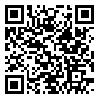مجله رویش روانشناسی از دادن گواهیهای کاغذی معذور است. لطفا تقاضا نکنید. همه گواهی ها در صفحه شخصی کاربران موجود است.
year 14, Issue 7 (Autumn1 2025 2025)
Rooyesh 2025, 14(7): 155-164 |
Back to browse issues page
Download citation:
BibTeX | RIS | EndNote | Medlars | ProCite | Reference Manager | RefWorks
Send citation to:



BibTeX | RIS | EndNote | Medlars | ProCite | Reference Manager | RefWorks
Send citation to:
Sadati S Z, Mahdavi F. (2025). The effectiveness of cognitive behavioral training based on spirituality on resilience and problem solving in adolescents with assault offenses residing in a correctional center. Rooyesh. 14(7), 155-164.
URL: http://frooyesh.ir/article-1-6115-en.html
URL: http://frooyesh.ir/article-1-6115-en.html
1- Department of Psychology, Qas.c. Islamic Azad University, Qaemshahr, Iran. , sadati.zahra@yahoo.coom
2- Department of Theology (Jurisprudence and Law), Qas.c. Islamic Azad University, Qaemshahr, Iran.
2- Department of Theology (Jurisprudence and Law), Qas.c. Islamic Azad University, Qaemshahr, Iran.
Abstract: (490 Views)
The aim of the present study was to determine the effectiveness of cognitive behavioral training based on spirituality on resilience and problem solving in adolescents with assault offenses residing in a correctional center. The present study was a quasi-experimental study with a pre-test-post-test design with a control group and a three-month follow-up period. The statistical population of the study included all adolescents with assault offenses residing in a correctional center in 2024 who were randomly assigned to two experimental and control groups. All of them completed the Connor et al. Resilience Questionnaire (CD-RISC) (2003) and Heppner et al. Problem Solving (PSI) (1982) before the intervention. After that, the experimental group received the cognitive behavioral training program based on spirituality in 8 90-minute sessions, once a week. The research data were analyzed using the analysis of variance with repeated measures method. The results showed that there was a significant difference between the pre-test and post-test between the groups (p<0.05). The results also showed that there was a significant difference in the variables of resilience and problem solving between the two groups in the post-test and follow-up stages (p<0.05). Accordingly, it can be said that the use of a cognitive behavioral training program based on spirituality can be effective in increasing resilience and problem solving in adolescents with assault offenses residing in correctional centers.
Type of Article: Research |
Subject:
Religious Psychology
Received: 2025/03/15 | Accepted: 2025/03/25 | ePublished: 2025/10/2
Received: 2025/03/15 | Accepted: 2025/03/25 | ePublished: 2025/10/2
Send email to the article author
| Rights and permissions | |
 |
This work is licensed under a Creative Commons Attribution-NonCommercial 4.0 International License. |





